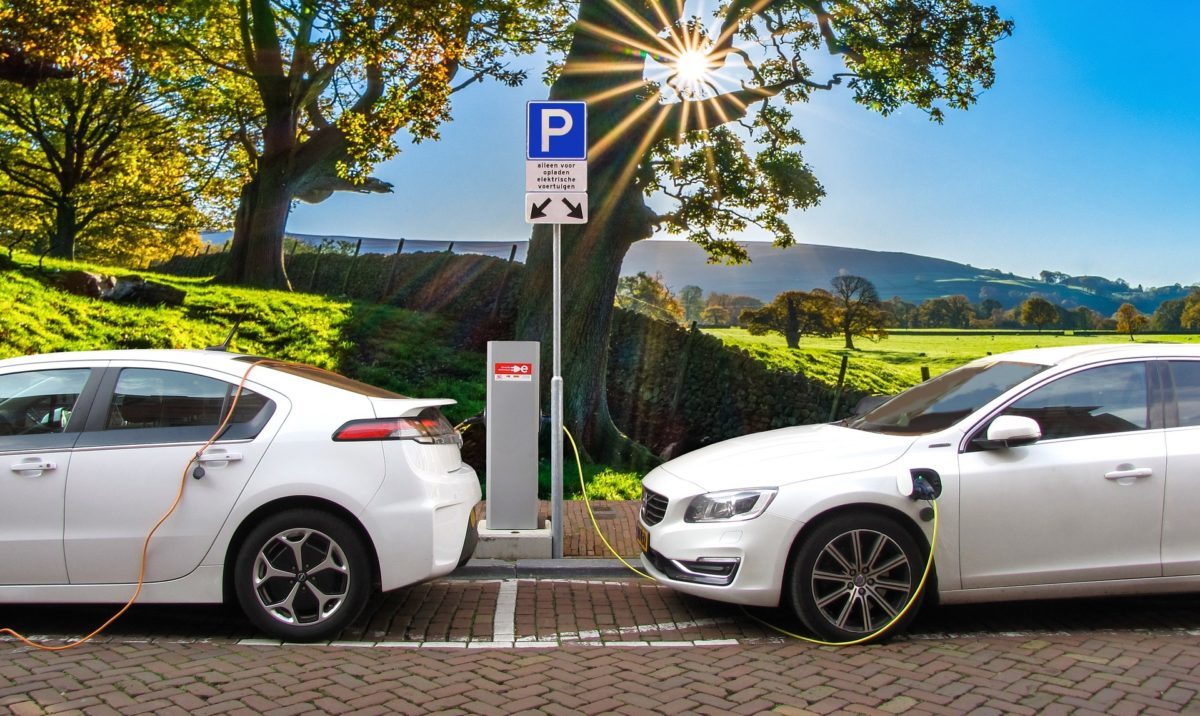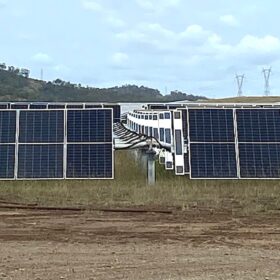It is one of the few bold shades in the grey science of economics that a government should tax that which it wants to discourage, and shouldn’t tax that which it wants to encourage.
And yet, in recent months and years, there has been a growing call, a call already being answered by Victorian and New South Wales (NSW) governments, for a remodelling of road taxes to incorporate electric vehicle (EV) users currently eluding fuel excise.
The fuel excise, a tax paid on every litre of petrol (approximately 40 cents), is ostensibly a tax imposed (if not for pure revenue-raising) to discourage excessive road use toward minimising congestion and emissions. Imagine if petrol was 40 cents cheaper, Australians would be driving their 4WDs to the fridge for a midnight snack. But if the government then turns around and taxes EVs, an industry not yet ready to compete, the only effects will be to undermine the fuel excise and hinder the national transition to EVs. After all, taxing EVs will only increase emissions and do nothing to combat the congestion problem.
In an article for The Conversation, Jake Whitehead, a research fellow at the University of Queensland, similarly argues that taxing EVs is a “short-sighted approach” which “risks killing the golden goose of our transport system.” Indeed, “such a tax would limit the economic, health and environmental benefits promised by electric vehicles which, together, far exceed any loss in fuel excise.”
Not only would an EV tax go some way to nullify the point of the fuel excise, it would go all the way to nullify a whole raft of other government incentives being lined up to encourage EVs. The Victorian Government is currently preparing its Zero Emissions Vehicle Roadmap (to be released this year), a strategic policy for the transition to EVs. According to Energy Victoria, the first priority of this Roadmap is to “identify actions to address barriers to zero-emissions vehicle uptake and encourage a competitive environment” – well, perhaps not introducing a tax on EVs would be a good start!
Alas, sound reason rarely resonates in political ears. According to the Sydney Morning Herald, Victoria is expected to implement a change to its road tax scheme ahead of May’s state budget; and in typical fashion, NSW will wait to see the reaction to VIC’s policy and then decide on its own course of action.
None of this is to say that EVs should never be taxed, only to say that EVs are not ready to be taxed, and nor should they be taxed in the outdated fashions. The federal government is experiencing a growing shortfall in the revenue it receives from fuel excise. However, this shortfall has been gradually occurring for almost two decades due to increases in vehicle fuel-efficiency. This shortfall will need to be covered, but taxing the growing, though still nascent, EV industry is not the answer. After all, a recent global study found that Australian interest in EVs is well below the global average. Only when the EV industry is on its feet in Australia will it be able to sustain taxation to an extent which would make up for that shortfall.
In a report published late last year by Infrastructure Partnerships Australia (IPA) entitled Road User Charging for Electric Vehicles, the IPA warned that the fuel excise “is in terminal decline”. The IPA is therefore proposing a road charge of 4 cents per kilometre for EVs. The IPA calculates that over an eight-year period, this charge would still render EVs at least $3,600 cheaper than an equivalent internal combustion engine (ICE) vehicle.
Indeed, the IPA believes such a tax will not disincentivise the uptake of EVs. “On the contrary,” argues IPA, “a road user charge would provide the catalyst for strong growth in the electrified fleet by providing potential electric vehicle buyers with certainty about the future road funding arrangements.” This argument would hold more water if road users were reassured by the way road funding arrangements have been managed in the past. According to the Urban Mobility Index released by navigation data firm Here Technology, Sydney and Melbourne, by themselves, are more congested than Rome, have less dependable public transport than Lisbon, and more traffic pollution than Mexico City.
If the government was really trying to implement a tax to discourage congestion and emissions, taxes on distance usage are hardly helpful. For the people who already live farthest from town would have to pay the most, meaning those closer to town would still be willing to bear the cost and congestion would remain unaffected. If the government really wanted to curb these problems, rather than raise revenues, it would introduce a congestion tax, politically unpopular, but shown to be effective in cities like London and Stockholm.
Only a uniform policy like a congestion tax would drive people to seek out public transport options. “Focusing solely on electric vehicles misses the broader point: we need to proactively prepare for the transition to a new transport system,” points out Whitehead, “This means ditching our unfair, outdated and unsustainable road tax model while reducing congestion.”
Nevertheless, the IPA’s proposal is an example of a policy that could be implemented toward the latter half of this new decade, rather than at its beginning. The Australian Electric Vehicle Market Study Report, jointly produced in 2018 by the Australian Renewable Energy Agency (ARENA) and the Clean Energy Finance Corporation (CEFC), estimated that EVs would achieve price parity with ICE vehicles in the mid 2020s, at which point sales would shift into gear. As of now, only marginal incentivising, as mentioned earlier, is being done to encourage this shift. For instance – EVs are not exempt from Luxury Vehicle Tax, meaning Australians have to pay more to switch to already more expensive vehicles.
Whitehead suggests that if the IPA’s proposal was to go ahead that the new road tax model should have a voluntary opt-in option for EV owners. The incentive to opt-in to the new model would be exceptions from the old road tax system, such as “vehicle registration, stamp duty, import tax, luxury car tax, fringe benefits tax, fuel excise, and road tolls.”
Whitehead’s holistic approach to the new road tax model is certainly appealing. Will governments listen? Or will they stampede ahead in a revenue induced madness? Clearly, there are enough outdated taxes upon the EV uptake already, and it is far too early to discourage the nation’s future.
This content is protected by copyright and may not be reused. If you want to cooperate with us and would like to reuse some of our content, please contact: editors@pv-magazine.com.









The transition from internal combustion engine vehicles to electric vehicles has started and the pace of change is driven by many factors. More and more people are beginning to see the impacts of pollution on the climate and their health.
Government can help speed up or slow down this transition, and need to react to the science and economics. Some people are willing to pay a little more to be “clean”, but most are waiting for the total cost of ownership to be less in order to go Hybrid, then PHEV then EV.
To bring the costs down, how about a boost to Australian jobs by incentivising manufacturing to make our own EV’s in Australia. If Turkey can do it, what can’t we.
On the road tax issue, how about all vehicles to pay a per kilometre charge based on axle loading, with their annual registration. Every vehicle needs to be inspected annually, to confirm kms driven. The existing fuel excise tax needs to be renamed a pollution tax, and this will act as an incentive to speed up the transition, and to reduce the pollution from the transport sector.
It goes without saying, that plugin vehicles need clean electricity, so more solar powered EV charging stations need to be built, and incentives for individuals to install additional home solar car charging facilities as well.
Thanks for the update
Thanks for the information
Well said Blake
“It is one of the few bold shades in the grey science of economics that a government should tax that which it wants to discourage, and shouldn’t tax that which it wants to encourage. “